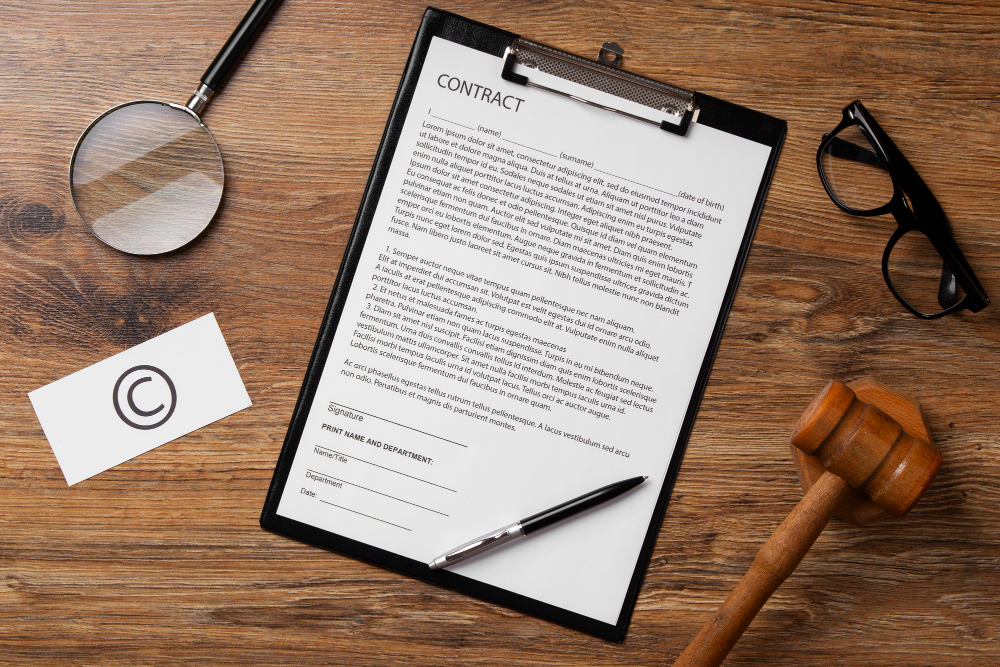Legal aid activities are established in the form of legal service contracts, in which liability for compensation for damages must comply with the general provisions of civil law while also exhibiting certain specific characteristics. This article presents the current legal framework in Vietnam and provides proposals for its improvement on this matter.
1. Compensation for damages in legal services
1.1 Compensation for damages
Currently, the Civil Code 2015 provides scattered provisions on liability for compensation for damages under civil liability for various reasons, including: delay in performing obligations(1), failure to perform the obligation to deliver property(2), failure to perform or inability to perform a task(3), delay in accepting the performance of obligations(4), breach of obligations(5), and under Chapter XX on liability for compensation for non-contractual damages.
Commercial Law 2005 also stipulates liability for damages in Article 302 “means the breaching party pays compensation for the loss caused by a contract-breaching act to the aggrieved party”.
Accordingly, liability for damages can be understood as the obligation to compensate for losses caused by one’s actions when a person violates their legal obligations, resulting in harm to another party(6).
1.2 Legal services
In Vietnam, there is currently no provision in any legal normative documents defining what constitutes legal service. The term “legal service” is associated with other terms and is scattered throughout the Civil Code 2015, the Commercial Law 2005, the Lawyer Law 2006, as amended in 2012, etc. – legal documents considered the legal basis for the provision of legal services in Vietnam.
A definition of “legal service” can be found in the Legal Dictionary as follows “a type of service provided by organizations or individuals with legal knowledge and expertise, authorized or permitted by the State to practice, aimed at meeting the legal information, consultation, or assistance needs of organizations and individuals in society”(7).
There are various criteria for classifying legal services, such as based on the service provider, the content of the legal services, etc.(8). Among them, the most common classification of legal services is based on the entity providing the service, specifically including:
- Legal services provided by lawyers.
- Legal services provided by notary public organizations.
- Legal services provided by legal aid centers.
- Legal services provided by commercial arbitration.
- Legal services provided by bailiff organizations.
1.3 Compensation for damages in legal services
Legal services directly impact the interests of the service requester or a third party (for example, the family members of a person who is detained and requests a lawyer to defend their relative, although the accused may refuse the lawyer(9)). Furthermore, legal services are difficult to assess in terms of quality, as there is no legal framework for agreeing on the quality of work, and achieving clarity and precision is challenging. Therefore, in the relationship between the parties, there are inherent risks that cannot be controlled, and if damages arise due to various reasons, compensation becomes the most crucial aspect of attention.
Rights and obligations of the parties in legal services arise from legal service contracts. Although in some cases the contract may not be formally named a “legal service contract”, it can be reflected in other documents, such as the Request Form from a client seeking notarization, which also represents a form of contract. Therefore, the breach of any obligation by one party is considered a contractual violation, and liability for damages will arise if the breaching party intentionally or unintentionally causes harm to the other party. In other words, compensation for damages in legal services is compensation for damages under a contract.
Based on the general principle of civil law, which is to respect and protect the legitimate rights and interests of the parties, when the rights and interests of individuals or organizations are infringed upon, resulting in damage, the violator must bear civil liability. The manifestation of this civil liability is the compensation for damages. Therefore, compensation for damages in legal services is governed by the following general principles:
- It is established by the provisions regulating the contractual framework. This liability arises when there is a breach of one or more obligations specified in the contract, whether by the legal service provider or by the client.
The following example is one of disputes between a client and a lawyer related to the issue of seeking compensation for damages that occurred recently. On March 21, 2023, the Ho Chi Minh City People’s Court held a hearing for the case “Dispute over the legal consulting contract” between the plaintiff, lawyer Dang Dinh Manh, and the defendant, Mrs. Du Thi Tuyet(10). A summary of the lawsuit is as follows: In 2017, Mrs. Tuyet signed a contract with lawyer Manh to represent her in a lawsuit against her ex-husband, Mr. Vương Thanh Kim, for the division of marital property, with a fee of 10% of the property value awarded. In 2019, the first-instance court ruled that Mrs. Tuyet would receive 11.5 billion VND within three months from the date the judgment became legally effective. Later, Mr. Kim appealed, but he withdrew the appeal and voluntarily paid the execution amount in February 2020 (after the three-month period from the date the judgment became effective). Mrs. Tuyet filed a lawsuit against lawyer Manh, demanding compensation of 7.4 billion VND, claiming that he failed to request the liquidation of the jointly owned property, valued at 37.9 billion VND according to the first-instance judgment, and instead agreed to receive 11.5 billion VND from Mr. Kim, which severely impacted her rights and interests
In addition to cases where clients sue lawyers for damages, disputes where lawyers sue clients also occur frequently. An example is the legal dispute over a legal service contract, which was publicly adjudicated by the People’s Court of Ho Chi Minh City in the appellate hearings on June 12, 2018, July 6, 2018, July 20, 2018, July 24, 2018, and August 20, 2018, between Law Firm K Co., Ltd. (referred to as the Company) and Mrs. Tran Thi My T. The Company and Mrs. T signed a contract under which the Company would provide legal consultation to help Mrs. T resolve a lawsuit, handle the enforcement procedures at the enforcement agency, and collect money or property from the enforcement agency. When the Company discovered that Mrs. T had unilaterally withdrawn her request for enforcement, it demanded the termination of the contract and payment for the legal services already rendered. However, Mrs. T evaded this obligation. As a result, the Company requested the court to order Mrs. T to compensate the amount stipulated in the signed legal service contract(11).
- Liability for damages is binding on both the organization providing legal services, not just the individual directly performing the work.
In specialized legal documents such as the Lawyer Law 2006, as amended and supplemented in 2012, provisions are made regarding the liability for damages of lawyer organizations(12), and individual practicing lawyers(13) for faults caused by the lawyer to the client while providing services. Or in the Notary Law 2014, “notarial practice organizations shall pay compensation for damage caused to notarization requesters and other organizations and individuals due to faults of their notaries or employees or interpreters being their collaborators in the process of notarization”(14).
However, in cases where the provision of legal services depends on a third party, leading to the outcome of the legal service being entirely determined by that third party, such as in litigation, where the lawyer applies their professional skills to defend the rights and interests of the client, but the outcome of the case is ultimately decided by the court. On the other hand, in most cases, the result of legal services only becomes apparent after a certain period of time, at which point the damage arises. This makes the process of determining the damage and applying measures to claim compensation for the damage more challenging.
2. Some shortcomings in the provisions on compensation for damages in legal services
In practice, the application of penalties for damages in legal services has raised several issues that need to be addressed:
2.1 The provisions on compensation for damages due to breach of contract are not consistent between the Civil Code 2015 and the Commercial Law 2005
Legal services are considered a type of commercial service, where the provider offers legal services for profit, and the recipient of these services is satisfied with specific requests or tasks and must pay a service fee. However, there are certain differences between the Civil Code and the Commercial Law, which create challenges in applying the provisions when resolving disputes in legal service contracts.
- Fault: The Civil Code recognizes fault as one of the grounds for triggering liability for damages, while the Commercial Law does not explicitly recognize the fault element (15).
The liability for damages of the parties providing legal services refers to the fault element, which aligns more closely with the principles of the Civil Code than with the Commercial Law.
- Cases of exemption from liability for the breaching party(16):
-
- The Commercial Law specifies four cases of exemption from liability: (i) occurrence of an exemption event agreed upon by the parties; (ii) occurrence of a force majeure event; (iii) the breach by one party is entirely caused by the fault of the other party; (iv) the breach by one party results from the execution of a decision by a competent state authority that could not have been foreseen by the parties at the time of contract conclusion.
-
- The Civil Code does not include “a breach by one party resulting from the execution of a decision by a competent state authority that could not have been foreseen by the parties at the time of contract conclusion” as a ground for exemption from liability. This omission creates challenges, particularly in legal services, where it is difficult to concretize outcomes, as the services mainly involve the performance of tasks.
For example, lawyers have the obligation to ensure the quality of legal services provided to clients, dedicate themselves to their work, utilize their capabilities, and apply professional knowledge and necessary skills to fully protect the rights and interests of their clients in accordance with law. However, they cannot guarantee specific outcomes. As a result, numerous cases arise where clients file lawsuits against lawyers when they are unable to proceed with their cases due to court decisions, even though the lawyers have performed their duties using professional measures.
Therefore, regarding this matter, the provisions of the Commercial Law are more appropriate for addressing compensation for damages in legal service contracts.
- Determination of compensation value:
-
- According to Article 360 of the Civil Code, “[i]n cases where damage is caused due to a breach of obligation, the obligor must compensate for the entire damage, unless otherwise agreed by the parties or provided by law”. Currently, this provision is subject to two interpretations: First, the parties may agree on a fixed amount of compensation for damages in the contract. Second, the parties may only agree on whether to compensate for part or the entirety of the actual damages incurred.
-
- Meanwhile, Clause 2, Article 302 of the Commercial Law explicitly states that “the value of compensation for damages includes the value of actual and direct losses suffered by the aggrieved party due to the breach and the direct benefits that the aggrieved party would have been entitled to if the breach had not occurred”. According to this provision, the compensation value is limited to the actual and direct losses as well as the direct benefits that should have been obtained.
Damages include both material and non-material damages, as well as expenses incurred to mitigate the consequences or arising due to the breaching party’s actions, as analyzed in Section 2.3 below. Therefore, the principle set forth in the Civil Code is more reasonable in stipulating that the compensation value should cover the entirety of the damages while respecting the parties’ autonomy to agree on compensation terms when entering into a legal service contract.
2.2 Lack of attention to professional liability insurance
Professionals providing legal services are required to perform their work and deliver services with diligence, expertise, and a high degree of accuracy. However, in practice, various reasons may lead to damage being caused to clients due to negligence, errors, or omissions during the execution of professional tasks. Therefore, participating in professional liability insurance serves as a measure to protect the interests of all parties involved in legal services, helps mitigate risks associated with the provision of such services, and simultaneously enhances clients’ trust in the service providers(17). On August 10, 2005, Phan Trung Hoai Law Office became the first law office in Vietnam to purchase professional liability insurance for lawyers.
Currently, the law has established that professional liability insurance is mandatory for law firms(18), notary organizations(19), and bailiff offices(20).
However, very few organizations or individuals providing legal services participate in this type of insurance, or they only do so as a formality to comply with administrative violation inspections by state regulatory authorities. This leads to the situation where, when risks occur, there is no financial protection for both the service provider and their clients. Legal service providers face negative impacts on their professional reputation, credibility, and image; clients who suffer damages without adequate compensation may develop concerns and hesitations when using legal services.
Furthermore, the mandatory obligation to purchase professional liability insurance is still outlined in a general and vague manner, without specifying the criteria, insurance coverage limits, sanctions, etc., which creates difficulties in practical enforcement. In Vietnam, there has yet to be any precedent for penalties related to professional liability insurance.
2.3 The cost of hiring a lawyer has not been universally defined as a responsibility for compensating damages
The tasks and information related to the damages that the injured party cannot independently collect must primarily be carried out through a lawyer, an authorized representative, or someone protecting the interests of the litigant. Therefore, the legitimate and valid legal fees for the lawyer are actual costs that the parties involved in the litigation must bear to take measures to remedy damages arising from the actions of the plaintiff, defendant, or parties with related rights and obligations. In essence, this expense should be regarded as a form of damage that needs to be compensated(21).
Currently, in the field of intellectual property, organizations or individuals who abuse the procedures for protecting intellectual property rights, causing harm to other organizations or individuals, have the obligation to compensate for the damages caused by such abuse. The injured party has the right to request the court to compel the abusing party to compensate for the damages caused, which includes reasonable legal fees for hiring a lawyer(22).
According to Clause 3, Article 144 of the Civil Procedure Code, it is stipulated that “the costs for hiring a lawyer shall be borne by the requesting party, unless the parties have agreed otherwise”. This means that the law has opened the door for the parties to include lawyer’s fees as part of an agreement, where one party may be required to bear the costs in the event of a breach of civil obligations.
However, in practice in Vietnam, according to the views of the judiciary as reflected in some judgments that include requests for reimbursement of lawyer’s fees, it is stated as follows: “The breach of contract… was not the direct cause leading to the damages requiring the hiring of a lawyer… Therefore, the plaintiff’s request for reimbursement of lawyer’s fees… is unfounded and not accepted”(23), or “the plaintiff’s… lawyer’s fees… must be borne by the plaintiff… there is no basis to compel the defendant… to pay as requested by the plaintiff”(24) or “the costs requested by Mr. T are not litigation costs and do not fall under the cases that must be compensated according to the law, so the first-instance court’s decision to reject Mr. T’s request is in accordance with the law”(25). Thus, in lawsuits (except in the field of intellectual property), the request for compensation of lawyer’s fees is generally not accepted.
3. Recommendations
3.1 Ensuring consistency of legal documents
The improvement of legal provisions on compensation for damages, especially in legal services, cannot be carried out independently but must be consistent and harmonious throughout the entire legal system, avoiding overlaps and contradictions, particularly in the relationship between the Civil Code and the Commercial Law. Provisions of a general nature should be removed from specialized laws and referenced according to the provisions in the Civil Code.
3.2 Improving the provisions on professional liability insurance for organizations providing legal services
Professional associations of legal service providers, such as the Vietnam Bar Federation, the Vietnam Notary Association, etc., should cooperate with insurance companies to draft sample insurance contracts, specifying the principles of professional liability insurance for each field of legal services provided.
In addition, the Ministry of Justice should develop a clearer and more specific legal framework for the professional liability insurance regime, such as stipulating the minimum required insurance coverage, enforcing more deterrent penalties for violations, etc.
3.3 Unifying the viewpoint that attorney fees are reasonable and actual costs that should be compensated as part of the damages
The involvement of lawyers in providing legal assistance to the parties should be recognized as a necessary and reasonable need. Moreover, when disputes arise, the court’s ruling requiring the violating party to reimburse these fees is also a way to prevent similar violations in the future.
Compensation for damages in legal services is a complex legal issue that necessitates the improvement of the legal system to ensure consistency and practical applicability. It is imperative to develop a clear, transparent, and unified legal framework. Specific regulations on professional liability insurance and the recognition of attorney fees as reasonable damages subject to compensation should be prioritized. This would not only enhance the professionalism and accountability of legal service providers but also safeguard the legitimate rights of clients, thereby fostering the sustainable development of the legal service industry in Vietnam.
(1) Civil Code 2015, Article 354 clause 1
(2) Civil Code 2015, Article 356 clause 3
(3) Civil Code 2015, Article 358 clause 1
(4) Civil Code 2015, Article 359
(5) Civil Code 2015, Article 360
(6) Nguyen Minh Oanh, “General concept of liability for damages and classification of liability for damages”, (Civil Law Information, May 05, 2010) <https://phapluatdansu.edu.vn/2010/04/05/20/04/4702-2/>, accessed on January 22, 2025.
(7) Ministry of Justice (2010), Legal Dictionary, Justice Publishing House, Encyclopedic Dictionary Publishing House, Hanoi
(8) Hoang Thi Vinh (2014), Legal Service Contracts in Vietnam, Hanoi (Doctoral Thesis in Law, Academy of Social Sciences – Vietnam Academy of Social Sciences)
(9) Circular 46/2019/TT-BCA, Article 4
(10) Thanh Phuong, “After winning the case, the lawyer was sued by the client for over 7 billion VND in damages”, (VietNamNet, March 21, 2023) <https://vietnamnet.vn/giup-thang-kien-luat-su-bi-than-chu-doi-nguoc-hon-7-ty-dong-2122962.html>, accessed on January 22, 2025
(11) The judgment No. 759/2018/DS-PT dated August 20, 2018, “Regarding the dispute over the legal service contract” of the People’s Court of Ho Chi Minh City
(12) Lawyer Law 2006, as amended and supplemented in 2012, Article 40, Clause 5
(13) Lawyer Law 2006, as amended and supplemented in 2012, Article 52, Clause 2, Point c
(14) Notary Law 2014, Article 38, Clause 1
(15) Nguyen Thi Hong Diep, “The law on liability for damages due to breach of commercial contracts and its practical application”, Electronic People’s Court Magazine, May 18, 2020), <https://tapchitoaan.vn/index.php/phap-luat-ve-trach-nhiem-boi-thuong-thiet-hai-do-vi-pham-hop-dong-thuong-mai-va-thuc-tien-ap-dung>, accessed on January 22, 2025
(16) Nguyen Thi Hong Diep, “The law on liability for damages due to breach of commercial contracts and its practical application”, Electronic People’s Court Magazine, May 18, 2020), <https://tapchitoaan.vn/index.php/phap-luat-ve-trach-nhiem-boi-thuong-thiet-hai-do-vi-pham-hop-dong-thuong-mai-va-thuc-tien-ap-dung>, accessed on January 22, 2025
(17) Phan Trung Hoai, “Gradually improving the legal regulations related to the regime of professional liability insurance for lawyers”, (Ho Chi Minh City Bar Association), < https://hcmcbar.org/NewsDetail.aspx?CatPK=2&NewsPK=60 >, accessed on January 23, 2025
(18) Lawyer Law 2006, as amended and supplemented in 2012, Article 1 Clause 17
(19) Notary Law 2014, Article 33 Clause 5
(20) Decree 08/2020/ND-CP, Article 18 Clause 2 Point dd
(21) Phan Trung Hoai, “Legal service cost”, (Lao Dong Newspaper, December 02, 2011), <https://laodong.vn/archived/chi-phi-dich-vu-phap-ly-710601.ldo>, accessed on January 22, 2025
(22) Law on amendments to some articles of Law on Insurance Business and Law on Intellectual Property 2019, Article 2, Clause 10
(23) The judgment No. 01/2013/KDTM-ST dated January 23, 2013, “Regarding the dispute over a Steel Purchase Contract” of the People’s Court of MH District, HY Province City
(24) The judgment No. 17/2014/LD-ST dated August 04, 2014, “Regarding unilateral termination of labor contract” of the People’s Court of Ho Chi Minh City
(25) The judgment No. 02/2019/LD-PT dated May 29, 2019, “Regarding unilateral termination of labor contract” of the People’s Court of Binh Thuan Province
See more:
1/ Liquidated Damages Agreement
2/ The compensation for damages in a lawsuit over the infringement of copyright
3/ Trademark violation disputes and Compensation for damages
Disclaimers:
This article is for general information purposes only and is not intended to provide any legal advice for any particular case. The legal provisions referenced in the content are in effect at the time of publication but may have expired at the time you read the content. We therefore advise that you always consult a professional consultant before applying any content.
For issues related to the content or intellectual property rights of the article, please email cs@apolatlegal.vn.
Apolat Legal is a law firm in Vietnam with experience and capacity to provide consulting services related to Contract Drafting and Reviewing and contact our team of lawyers in Vietnam via email info@apolatlegal.com.





































